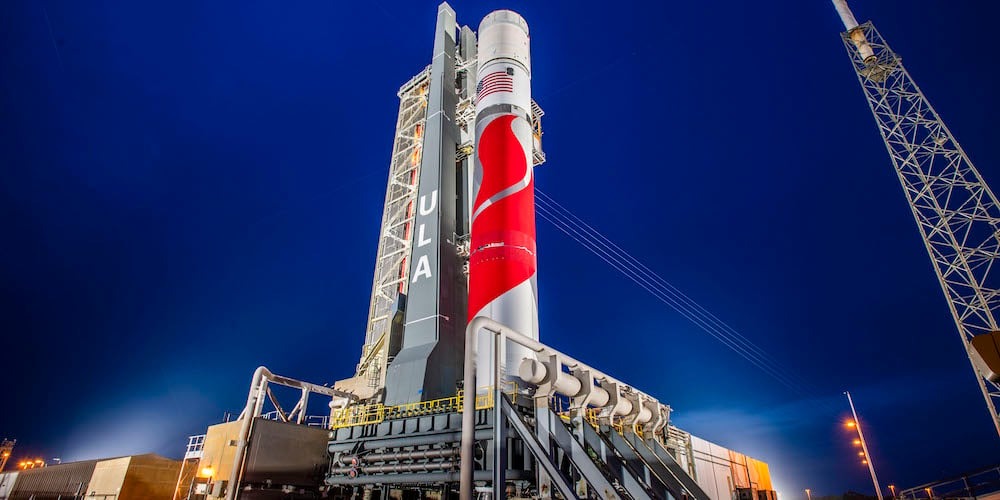The United Launch Alliance (ULA) company, when it comes to private space flights, usually finds itself in the shadow of SpaceX. Although the latter usually occupies all the headlines, ULA is active in the national security, civil and commercial services markets. It has recently presented an updated version of its Vulcan Centaur rocket, which is the successor to the Atlas V and Delta IV rockets. The first flight of this carrier, called Cert-1 (Certification-1), is scheduled for December 24, 2023, from the SLC-41 launch complex at Cape Canaveral in Florida. This launch will take place simultaneously with the arrival of Astrobotic Technology’s Peregrine lander on the Moon.

On Monday, November 6, ULA announced that the Vulcan rocket was in final preparation for this important launch. The process includes a dress rehearsal, during which the rocket launch systems and procedures and the integration of spacecraft are checked.
“This launch begins a new era for ULA and for the country. This rocket is transforming the future of launch. Vulcan satisfies all challenging orbital requirements essential for U.S. national defense and provides one scalable system for all missions while continuing to provide unmatched reliability and orbital precision,” said Tory Bruno, President and CEO of ULA.
The main stage of the Vulcan rocket is powered by two BE-4 engines developed by Blue Origin, a company owned by Jeff Bezos. The company is also known for its short-term tourist flights to the edge of space and the development of a lander for future missions to the Moon with a crew and cargo.
If the Cert-1 mission is successful, ULA plans to launch the Vulcan rocket again as part of the Cert-2 mission in early 2024.
Other participants of the private space
Space companies are helping to actively develop rocket science, making launches cheaper and more frequent. For example, the French company Arianespace is preparing the Ariane 6 rocket for its first flight next year. Also, the New Zealand firm Rocket Lab is developing a Neutron carrier that can deliver astronauts into orbit.
Of course, we should not forget about SpaceX, which in the coming months hopes to send its Super Heavy rocket with the Starship spacecraft on its second test flight after an unsuccessful launch in April this year.
Earlier we reported on how the Vulcan Centaur engine tests ended with a powerful explosion.
According to ulalaunch.com
Follow us on Twitter to get the most interesting space news in time
https://twitter.com/ust_magazine

